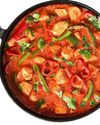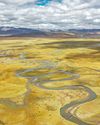
It is hard to imagine how wild Singapore used to be, especially when all you seem to hear about the tiny city-state are its towering skylines, round-the-clock container ports, and efficient train system, which snakes across the entire length of the island. It might be a shock then, that up until the mid-20th century, a maze of rivers and mangroves snaked across the island in much the same way.
It might be an even bigger surprise that Singapore was also a haven for huge saltwater crocodiles, which used this intricate maze of waterways to travel across the island. The Hikayat Hang Tuah, an 18th century Malay text, even mentions that the Straits of Singapore were infamous for being infested with crocodiles. Centuries ago, they were an undeniable part of everyday life for the indigenous communities, pioneer immigrants and colonials who had made Singapore their home. Given that saltwater crocodiles can grow to upwards of six metres and they are known for their ferociousness, the hostile relationship between crocodiles and humankind was probably a tense one at best: Crocodile sightings and attacks on human settlements were well-documented in written accounts and newspaper articles from the 1800s. As a result, these large reptiles were treated with both fear and reverence. Some people hunted them for meat while others respected them as keramats – spiritual guardians of their kampungs (villages).
Nowadays, most Singaporeans would be surprised to hear that crocodiles can still be found on the island. So where did all the crocodiles go?
This story is from the AG 06/2021 - 151 edition of ASIAN Geographic.
Start your 7-day Magzter GOLD free trial to access thousands of curated premium stories, and 9,000+ magazines and newspapers.
Already a subscriber ? Sign In
This story is from the AG 06/2021 - 151 edition of ASIAN Geographic.
Start your 7-day Magzter GOLD free trial to access thousands of curated premium stories, and 9,000+ magazines and newspapers.
Already a subscriber? Sign In

A Spectrum Of Scarlet: The Symbolic Red Of Asian Flags
A common thread that unites many Asian flags is the prominent use of red, a colour rich with symbolism

Curry: A World of Flavour, Tradition, and Culture
From its humble beginnings in India, the concept of "curry" has evolved into a culinary language understood around the world

The Power Of Asian Red Fruits - Discover 10 Nutrient-Rich Gems Of The East
In the vast tapestry of Nature, Asia has gifted the world an array of unique and vibrant fruits, particularly those in shades of red. These scarlet-hued gems, packed with flavour and nutrients, not only add a burst of colour to your plate but also carry valuable health benefits. From antioxidant-rich goji berries to the exotic dragon fruit, let's explore some of the most popular red fruits from Asia and discover why they should be part of your diet.

Bhutan: A World Of Its Own
With its majestic monasteries, red-robed monks, charming rural villages, and vibrant festivals, the Kingdom of Bhutan is a Himalayan paradise that promises an enriching travel experience like no other

Take The Red Pill
From the vermilion torii gates of Japan to the famed rust-hued walls of India's Agra Fort, the burgundy robes of Burmese monks to scarlet chillies drying in the Bangladeshi sun, red is the quintessential colour of Asia.

70 Days for Our Land Animals
Raising awareness about conservation, the environment, and the land-dwelling species of the world

The Red Panda
Meet the elusive guardian of the Eastern Himalayas

Revealed Doctor Yellow
Japan Railways' special lemony Shinkansen is a rare sight to behold

The Mighty Yellow
Over 5,000 kilometres long and flowing through nine provinces and autonomous regions, the Yellow River is China's second largest, after the Yangtze, while its basin is deemed the cradle of Chinese civilisation

Wildlife Big Yellow Beauty
The popular "amelanistic" form of the Burmese python is considered among the most beautiful snakes - if that's your sort of thing